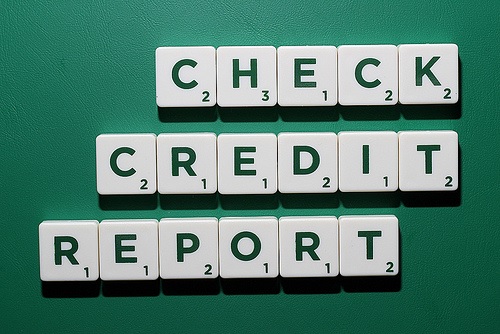Unfortunately, scams are a part of everyday life. In fact, the Federal Trade Commission (FTC) stated that in 2011, 25.6 million people had paid for fraudulent services and products. Criminals use all types of methods such as phone, email, text, and social media sites to scam people, but the best way to protect yourself from scams is by prevention and early detection. Discover the following five ways you can protect yourself from getting scammed.
Monitor Your Credit Report

Image via Flickr by cafecredit
Monitoring your credit report is one of the fastest ways to find out if someone is scamming you. Your credit report will help you quickly identify whether someone has opened an account in your name. You can get a free credit report annually from each credit reporting agency: TransUnion, Equifax, and Experian. However, you still need to check your credit report more than once a year.
Stay Educated on Current Scams
The simplest way to protect yourself from scams is to do your research and be aware of scams. You can stay educated by staying updated on the latest scams and tactics scammers use to defraud people. The FTC offers a website that helps people learn about the latest scams.
Frequently Check Your Accounts
Log in online regularly to check your bank and credit card accounts to make sure transactions are legitimate. You want to look for discrepancies such as unexplained charges and check transactions that are significantly out of order. For example, if check number 3014 follows 3018, the sequence is clearly out of order and you’ll need to review your account in detail.
Some banks and credit card companies offer services such as e-statements that give you faster access to your accounts. These companies also offer alerts that warn you when suspected fraudulent activity occurs.
Don’t Give Out Personal Information Over the Phone
Don’t give out your personal information such as your Social Security number, date of birth, or bank account information over the phone. Recently, scammers have been calling taxpayers impersonating Internal Revenue Service (IRS) agents and threatening them with arrest, license revocation, and deportation. The Internal Revenue Service has warned consumers about the increase in threatening calls by criminals and have set up a webpage to offer taxpayers information about IRS scams and how to handle these calls.
Avoid Phishing Scams
Scammers send phishing scams to get valuable information from people such as bank account numbers and passwords. Phishing scams can make emails look like they are coming from a legitimate institution such as your bank, and they try to convince people that they are requesting updated information. People can fall for this trick because scammers use logos or website addresses that make the email look legitimate.
For example, some phishing scams use graphics from banks and links that look like they belong to that institution. If you receive an email requesting information, check the link provided. Copy and paste the link into a new window so that you can view the website. While viewing the link in a new window still doesn’t rule out the possibility of a scam, the best practice is to avoid giving out personal information.
Protecting you and your money from scammers is easy to do if you stay proactive and informed. Keep your information private and check your accounts regularly to lower your chances of becoming a victim.